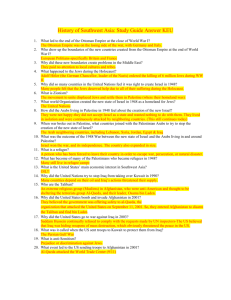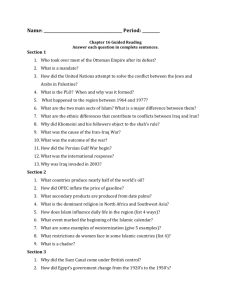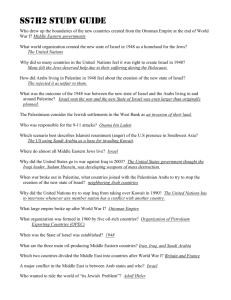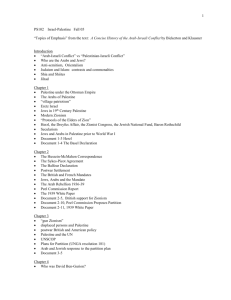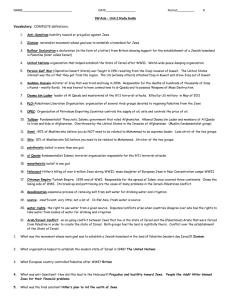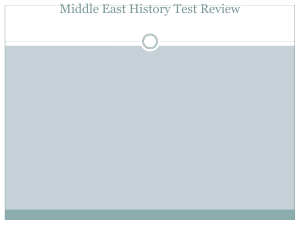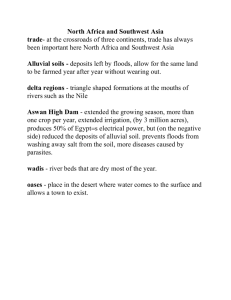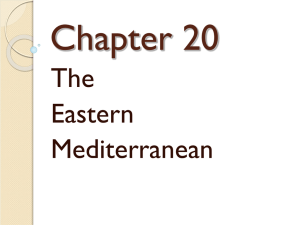Middle East Today
advertisement
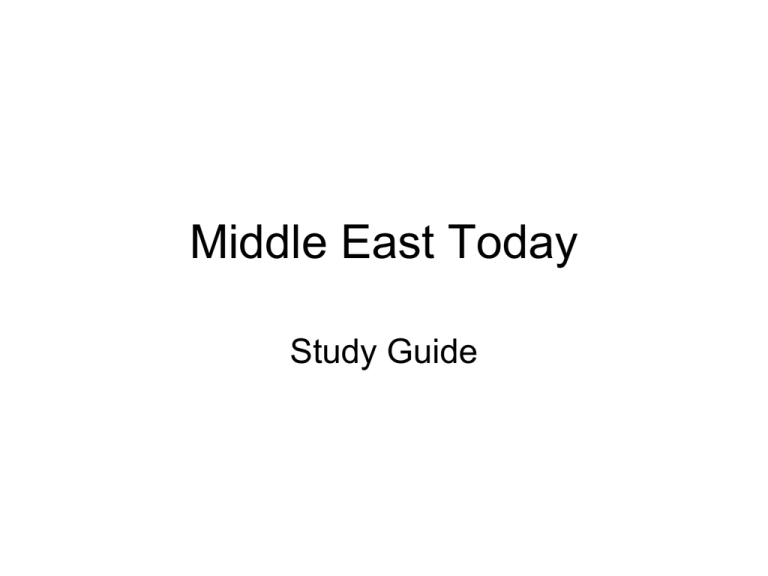
Middle East Today Study Guide 1. Anti-Semitism: hatred of Jews because they are Jewish. 2. Holocaust: a time when 6 million Jews were killed in concentration camps during WWII 3. Zionism: Jewish belief that Jews deserve a homeland in Zion 4. Which describes the Holocaust?: the murder of millions of European Jews during WWII 5. Why did so many countries in the United Nations feel it was right to create Israel in 1948? Many felt the Jews deserved help due to their suffering during the Holocaust. 6. What is Zionism? The belief that Jews deserved to return to a homeland in Zion where they had lived in Biblical times 7. What world organization created the new state of Israel? The United Nations 8. How did Arabs living in Palestine in 1948 feel about the creation of the new state of Israel? They rejected it as unfair to them. 9. When war broke out in Palestine, what countries joined with the Palestinian Arabs to try to stop the creation of the new state of Israel? Neighboring Arab countries 10. Which countries border the Gaza Strip? Israel and Egypt 11.What is the approximate location of the Dead Sea from Jerusalem? Southeast Dead Sea 12. What country is found at 31° N, 34° E? Egypt 13. What was the outcome of the 1948 War between the new state of Israel and the Arabs living in and around Palestine? Israel won the war and the new State of Israel was even larger than originally planned. 14. What is a “refugee”? A person who had to leave his home because of war. 15. What has become of many of the Palestinians who became refugees in 1948? Many still live in refugee camps. 16. What is the United States’ main economic interest in Southwest Asia? Oil 17. Why did the United Nations try to stop Iraq from taking over Kuwait in 1990? The economies of many countries depend on oil, and Iraq’s actions threatened their supply. 18. Who are the Taliban? a group of radical Muslims 19. Why did the U.S. bomb and invade Afghanistan in 2001? They believed the government was offering safety to alQaeda. 20. Why did the U.S. go to war against Iraq in 2003? The U.S. government saw the Iraqi leader, Saddam Hussein, as a threat to peace and U.S. interests in the region.
